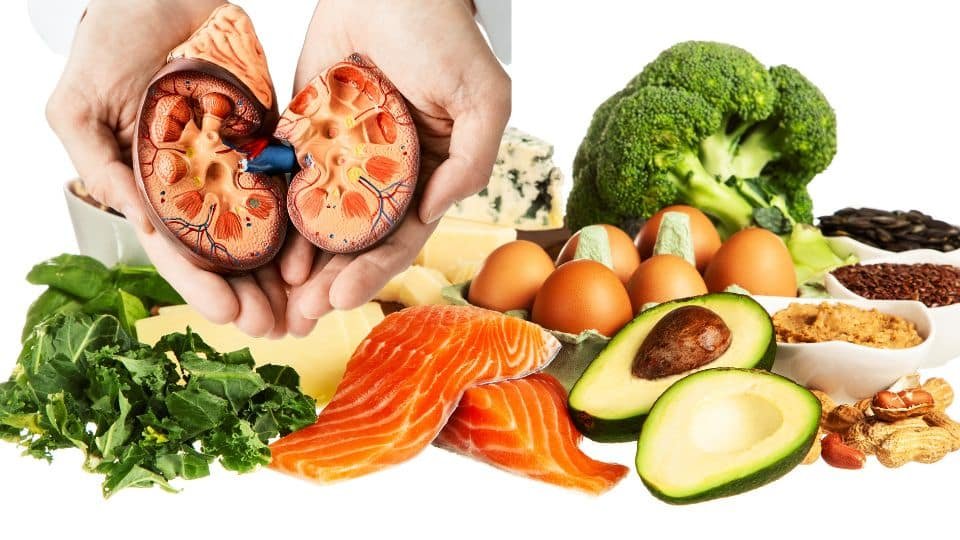Welcome! Today, we’ve got some exciting news for anyone dealing with type 2 diabetes and looking to make some positive changes in their life. We’re diving into a fascinating study published in the renowned journal, “ Obesity.” In this study, scientists took a closer look at the relationship between a high-protein diet, red meat consumption, weight loss, and type 2 diabetes management. So, if you’re interested in improving your health or simply curious about the science behind it, stick around because we’re breaking it all down for you.
The main goal of this study was pretty straightforward. The researchers wanted to see how a high-protein diet featuring lean beef, compared to a regular-protein diet without red meat when it comes to weight loss, changes in body composition, and controlling type 2 diabetes.
They had 106 participants, and here’s the exciting part – 80 of them were women. These individuals all had type 2 diabetes. For 52 weeks, that’s a whole year, they followed two different diets. The first group ate a high-protein diet, where 40% of their calories came from protein, and they included at least four servings of lean beef each week. The second group, the normal-protein group, had a diet with only 21% of calories from protein and, here’s the twist: no red meat.
So, what happened? Well, both groups lost weight, and that’s a big win right there. The high-protein group lost about 10.2 kilograms on average, while the normal-protein group lost slightly more, about 12.7 kilograms. But hold on, before you rush to judgment, the difference between the two groups was not statistically significant. In other words, the type of protein didn’t seem to make a big difference in weight loss.
You can also view this article: Could Kombucha be Your New Secret Weapon Against Type 2 Diabetes?
Now, let’s talk about body composition. Both groups saw improvements. They managed to reduce fat mass and increase the percentage of fat-free mass. So, whether you choose the high-protein diet with beef or the normal-protein diet without red meat, your body composition could benefit.
If you’ve got type 2 diabetes, you’re probably wondering about glucose control. Well, the good news is that both groups saw improvements in various measures like Hemoglobin A1c, blood glucose levels, insulin levels, insulin resistance, blood pressure, and triglycerides. The best part? There were no significant differences between the two groups in these improvements. In simple terms, it didn’t matter if you were enjoying your lean beef or opting for a red-meat-free approach; both were equally effective in improving your diabetes management.
So, what’s the big takeaway from all this? The study tells us that when it comes to type 2 diabetes management and weight loss, what matters most is, well, actually losing the weight. The type of protein you eat doesn’t seem to be a game-changer. Both high-protein diets with lean beef and normal-protein diets without red meat can help you make progress.
It’s essential to remember that while this research provides valuable insights, it’s just one piece of the puzzle. If you have type 2 diabetes or you’re looking to improve your health, it’s always a good idea to consult with a healthcare professional or a registered dietitian who can help you find the right dietary approach that suits your needs and preferences.
And there you have it, a glimpse into a significant scientific study from the renowned journal “ Obesity.” Remember, it’s not just about the type of protein you eat; it’s about reaching your weight loss goals and improving your health.
Glossary:
- Type 2 Diabetes: A chronic condition characterized by high blood sugar levels resulting from the body’s inability to use insulin effectively.
- High-Protein Diet: A dietary approach where a significant portion of daily calories comes from protein-rich foods.
- Journal “Obesity: A reputable scientific journal where the study discussed in the article was published.
- Body Composition: The ratio of fat mass to lean body mass (muscles, bones, organs) in an individual’s body.
- Hemoglobin A1c: A measure of average blood sugar levels over several months used to assess long-term blood sugar control in diabetes.
- Insulin Levels: The amount of insulin, a hormone that regulates blood sugar, in the bloodstream.
- Insulin Resistance: A condition where the body’s cells do not respond effectively to insulin, leading to elevated blood sugar levels.
- Blood Pressure: The force of blood against the walls of arteries, measured in millimeters of mercury (mmHg).
- Triglycerides: A type of fat found in the blood, high levels of which can increase the risk of heart disease.
Journal Reference:
Julianne G. Clina, R. Drew Sayer, Zhaoxing Pan, Caroline W. Cohen, Michael T. McDermott, Victoria A. Catenacci, Holly R. Wyatt, James O. Hill. High‐ and normal‐protein diets improve body composition and glucose control in adults with type 2 diabetes: a randomized trial. Obesity, 2023; 31 (8): 2021 https://doi.org/10.1002/oby.23815



 By
By










